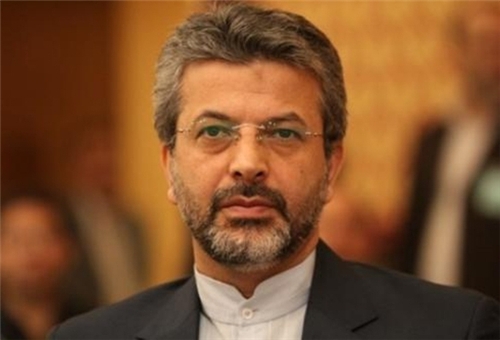 TEHRAN (FNA)- Former Iranian Minister of Science, Research and Technology Kamran Daneshjou�warned of the dangerous repercussions of the acceptance of the Additional Protocol to the Non-Proliferation Treaty (NPT) for Iran�s national security, saying that the US plans to send spies to Iranian centers under the guise of IAEA inspections.
TEHRAN (FNA)- Former Iranian Minister of Science, Research and Technology Kamran Daneshjou�warned of the dangerous repercussions of the acceptance of the Additional Protocol to the Non-Proliferation Treaty (NPT) for Iran�s national security, saying that the US plans to send spies to Iranian centers under the guise of IAEA inspections.Daneshjou told FNA on Saturday that the US is seeking hard to make Iran accept the Addition Protocol, �because it intends to send its spies disguised as inspectors to Iran to become informed of all the Islamic Republic�s capabilities in all domains and issues�.
�The US wants to interrogate anyone and anywhere it wants using the Additional Protocol,� he cautioned.
Daneshjou voiced confidence that the Iranian government and the negotiating team with the world powers won�t succumb to the pressures exerted by the US and its allies to force Iran into signing and implementing the Additional Protocol.
The Additional Protocol was created following the discovery of clandestine nuclear weapons programs in Iraq and North Korea during the 1990s. Countries conclude specific additional protocols to supplement their International Atomic Energy Agency (IAEA) safeguards arrangement.
For the Additional Protocol to be enforced in any country, it needs the approval of both the government and the parliament of that country.
In addition to those which have basically rejected endorsement of the NPT, most signatories to the NPT have also defied accepting the agreement. Accepting the protocol is a voluntary, and not compulsory, decision.
In October, the Iranian foreign ministry underlined the good interactions between the government and parliament, specially in regard to the settlement of the country's nuclear issue, and said the legislature has the jurisdiction to deal with the country�s approval or non-approval of the Additional Protocol.
�There is a very good interaction between the government and the parliament and the parliament speaker (Ali Larijani) is informed of the process of the negotiations and the relevant discussions,� Foreign Ministry Spokeswoman Marziyeh Afkham told reporters in Tehran at the time.
�Making a decision about the Additional Protocol is a responsibility vested on the parliament which will decide about the issue based on the trend of the negotiations and progress in debates (with the world powers),� she added.
But on December 25, a senior Iranian legislator said that staying out of the Additional Protocol demanded by the world powers is among Iran�s most important redlines.
�(Non-acceptance of) the Additional Protocol is the main redline of the Islamic Republic of Iran,� member of the parliament�s Energy Commission Ebrahim Karkhaneyi said, addressing an open session of the parliament.
On November 24, Iran and the six world powers (the US, Russia, China, Britain and France plus Germany) sealed an interim deal (the Joint Plan of Action) in the Swiss city of Geneva to lay the groundwork for the full resolution of the dispute between the West and Iran over Tehran�s nuclear energy program.
In exchange for Iran agreeing to limit certain aspects of its nuclear activities, the six countries undertook to lift some of the existing sanctions against Tehran.
By Fars News Agency
The Iran Project is not responsible for the content of quoted articles.











